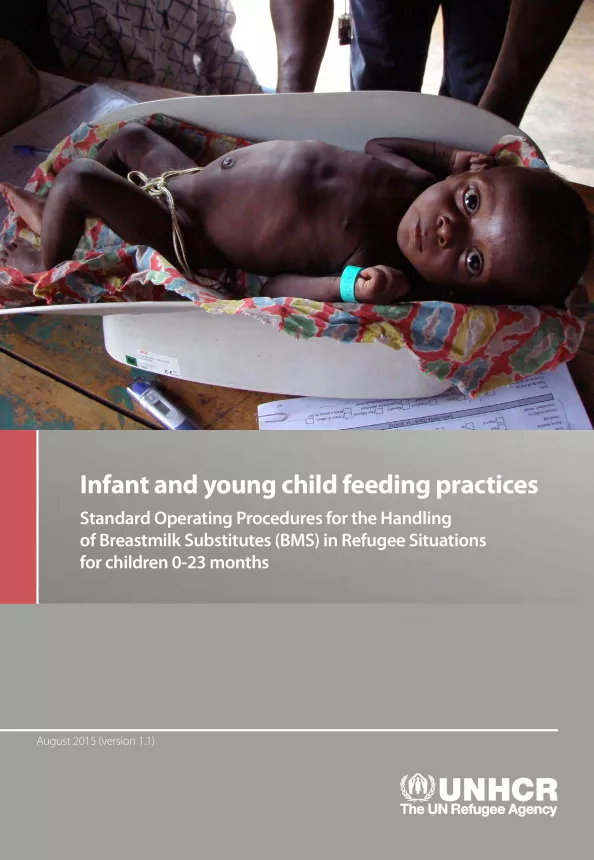Infant and Young Child Feeding Practices: Standard Operating Procedures for the Handling of Breastmilk Substitutes (BMS) in Refugee Situations for Children 0 - 23 months
Publication details
These SOP provide guidance on how staff of UNHCR and UNHCR partners should manage artificial feeding in refugee contexts to protect both breastfed and non-breastfed children. Particular consideration is given to emergency contexts; to high burden, resource poor settings; and to pastoral communities. Emergency context is considered specifically due to the particular vulnerability in overcrowded unstable situations. The issue is however also of concern in protracted refugee situations.
Children under 2 years of age (0 - <24 months) and their mothers/caregivers are the population of concern, especially infants 0 - <6 months. Since pastoral communities comprise a significant proportion of refugees under UNHCR protection, management of milk in infants over 6 months in this population group is considered specifically. The SOP do not cover the handling of therapeutic milks for the treatment of severe acute malnutrition.
These SOP comprise core recommendations and case studies (laid out in this document) and annexes (in a separate document). The case studies were collected from UNHCR country programmes and have informed the scope and content of these SOP.
Available in English and French.
